>
Blog>
Crossover Vs SUV: Which is Better?Crossover Vs SUV: Which is Better?
The most predominant automotive trend of the last ten years is evident. Motorists prefer taller, larger, 4-wheel drive-style vehicles over hatchbacks and estates. The numbers don’t lie! In 2021, SUVs made up nearly 50% of the total car sales across Europe. Now that’s impressive.
Although the benefits of both Crossovers and SUVs may be many, are there as many deciding factors between the two? What is the difference between crossovers vs SUVs? Today, we’re going to find out.
In this article, we’ll explain what each is, how, and if they differ. As well as helping you decide if a crossover or an SUV is best for your particular needs. Scroll down to find out more.
What is an SUV?
An SUV stands for Sports Utility Vehicle and refers to a car that mixes road-going passenger cars with offroad vehicles.
The Jeep Wagoneer was based on a pickup truck, first released for sale in 1963 by the famous American automaker Jeep. It soon became a favourite of families needing extra passenger and luggage space.
The original Jeep Wagoneer had a critical design feature that some people still consider the defining feature of an SUV - a body-on-frame vehicle. It had a sturdy steel ladder chassis and a car body bolted on top. This made it easy to make passenger cars that share pickup truck components.
Since then, car designers worldwide have realised many motorists enjoy the higher driving position, off-road capability, and feel of safety that a large, high-up vehicle affords.
First, it was mainly companies that also produced utility vehicles made SUVs, such as Ford, Land Rover, Toyota and others. Now, after the definition of what makes an SUV has changed slightly, almost every manufacturer includes one in their lineup.
What is a Crossover?
Crossovers are technically small SUVs, larger than traditional estate or hatchback cars.
These are a more recently introduced body type, and the crossover evolved to be a higher vehicle that didn’t have the large engine or physical bulk of a full-size SUV.
Instead of a ladder chassis, they are typically built using the same engineering architecture as their car cousins. For instance, the 2nd most popular car and SUV sold in 2022, the Nissan Qashqai, is built on the platform used for the Renault Megane.
Modern cars have used this ‘Unibody’ design, where the body also forms the chassis, for a long time, but it is trendy in Europe as it tends to allow the cars to be more compact. As well as using a unibody design, they are often only equipped with front-wheel drive.
What is the difference between a crossover and an SUV?
We’ve explored what defines each type of vehicle, but what matters is the difference between them, which will allow you to make an informed decision.
In some ways, the crossover is the baby brother to the SUV. They have many of the same positive characteristics, but there are some crucial differences:
- SUVs are derived from commercial vehicles such as pickup trucks and tend to use a body-on-frame chassis.
- Crossovers, however, are built much like a regular hatchback, meaning they weigh less and are more space-efficient.
- Crossovers provide a car-like driving experience due to better handling, more fuel efficiency and a smoother ride.
- SUVs have better off-road capabilities, such as four-wheel drive and robust suspension systems.
- SUVs have lower fuel efficiency due to their size and construction.
Is there a grey area between crossovers and SUVs?
No, there isn’t a grey area between crossovers and SUVs. Though similar, there are distinct differences between the two types of vehicles, as noted above.
Are SUVs more powerful than Crossovers?
Yes, SUVs are typically more powerful than crossovers.
Because SUVs use utility vehicle components as a base, they are often available with the same range of engines. These are generally larger diesel engines that are made for towing heavy loads.
Due to them being based on smaller passenger vehicles, Crossovers typically have smaller engines. This does, however, mean they are more fuel-efficient.
Do crossovers have 4-wheel drive?
Typically, no. Because crossovers are heavily based on car chassis and designs, they often only incorporate front-wheel drive. All or four-wheel drive requires adding components such as gearboxes and changes to the car's chassis.
Conversely, SUVs are often built on utility vehicle platforms, such as pickup trucks or 4x4 vehicles. This means they often have the infrastructure for native 4-wheel drive.
This doesn’t mean that all SUVs have 4WD, though. Many are offered in 2WD for better value SUVS with good fuel economy.
Do SUVs cost more than crossovers?
SUVs usually cost more than crossovers due to their more complex construction and the fact there’s less demand.
Vehicles such as the Range Rover SV and Toyota Hilux are larger and more powerful than many other vehicles on the market but are aimed towards the luxury segment, again increasing the price tag.
Even after the purchase, SUVs will cost more money to run. Their larger engines are less efficient and cost more to tax than a typical crossover. They are also typically more expensive to insure. If you're looking for a more affordable SUV, then be sure to check out our guide to the cheapest SUVS available in the UK.
Are SUVs safer than Crossovers?
One crucial factor that leads people to choose SUVs and other larger cars is the perceived safety benefits. While SUVs are statistically safer than smaller cars, are SUVs notably safer than crossovers?
A benefit of crossovers is their lighter weight, which means they have less momentum to stop when braking, and they have better cornering performance for avoiding obstacles.
The statistics show that you’re more likely to survive a crash the larger the vehicle. This is a testament to the high build quality and ability to incorporate better and more numerous safety features into larger vehicles.
The question of whether SUVs or crossovers are safer is a difficult one to answer. In theory, Crossovers should be less safe due to their lower weight and size, yet they are less likely to be involved in an accident in the first place.
What are the different types of SUVs?
There are three basic categories of SUVs:
- Small (e.g. Ford Bronco and Jeep Wrangler)
- Midsized (e.g. Toyota 4Runner)
- Large (e.g. Chevy Tahoe and Ford Expedition)
SUVs Vs Crossovers
Get the lowdown on the benefits and drawbacks of SUVs vs crossovers below.
Benefits Of Crossovers
- A smaller vehicle is more fuel-efficient and easier to park
- The style and presence of an SUV with lower costs
- Cheaper to purchase and run
- More choice of models and manufacturers
- Typically 2 wheel drive is less complex
Drawbacks Of Crossovers
- Not suitable for extreme terrains or offroading
- Higher repair costs
Benefits Of SUVs
- A higher vehicle with better ground clearance gives some off-road capability
- Statistically safer because they are heavier
- Rugged utility vehicle-based chassis which should last longer
- Higher towing capacity due to more power
- More practicality with a larger boot and passenger space
Drawbacks Of SUVs
- Too large for city driving
- Higher cost of ownership
- Bad fuel economy
SUVs Vs Crossovers: Which Is Better?
Now we’ve highlighted the differences, which one is the best? Well, this question, like many car-related decisions, depends on your personal circumstances and preferences.
If you need a comfortable and luxurious car that can carry 5-7 people and tackle some serious off-road challenges, you need an SUV.
A crossover could be perfect for you if you’re unlikely to ever need a 4-wheel-drive but would benefit from the higher driving position and large overall size compared to a hatchback. As we’ve discussed, they are also more budget-friendly to buy and use.
Best SUVs and Crossovers In 2024
With the vast array of models on offer, choosing the right car for you can be tricky. But we’ve done the research for you. Find some of the best-rated cars currently on sale below.
Best Crossovers In 2024
1. Kia Sportage
Formerly seen as a cheap car brand, their recent offerings have improved reliability, comfort and style. The latest Kia Sportage is available in petrol, diesel and hybrid variants.

If you have a larger family, they are available with seven seats. Kia’s 7-year warranty should also give some peace of mind with the cost of repairs.
2. Honda CR-V
Honda has a well-deserved name in reliability and engineering excellence. The CR-V has been one of the best-selling crossovers since its inception.
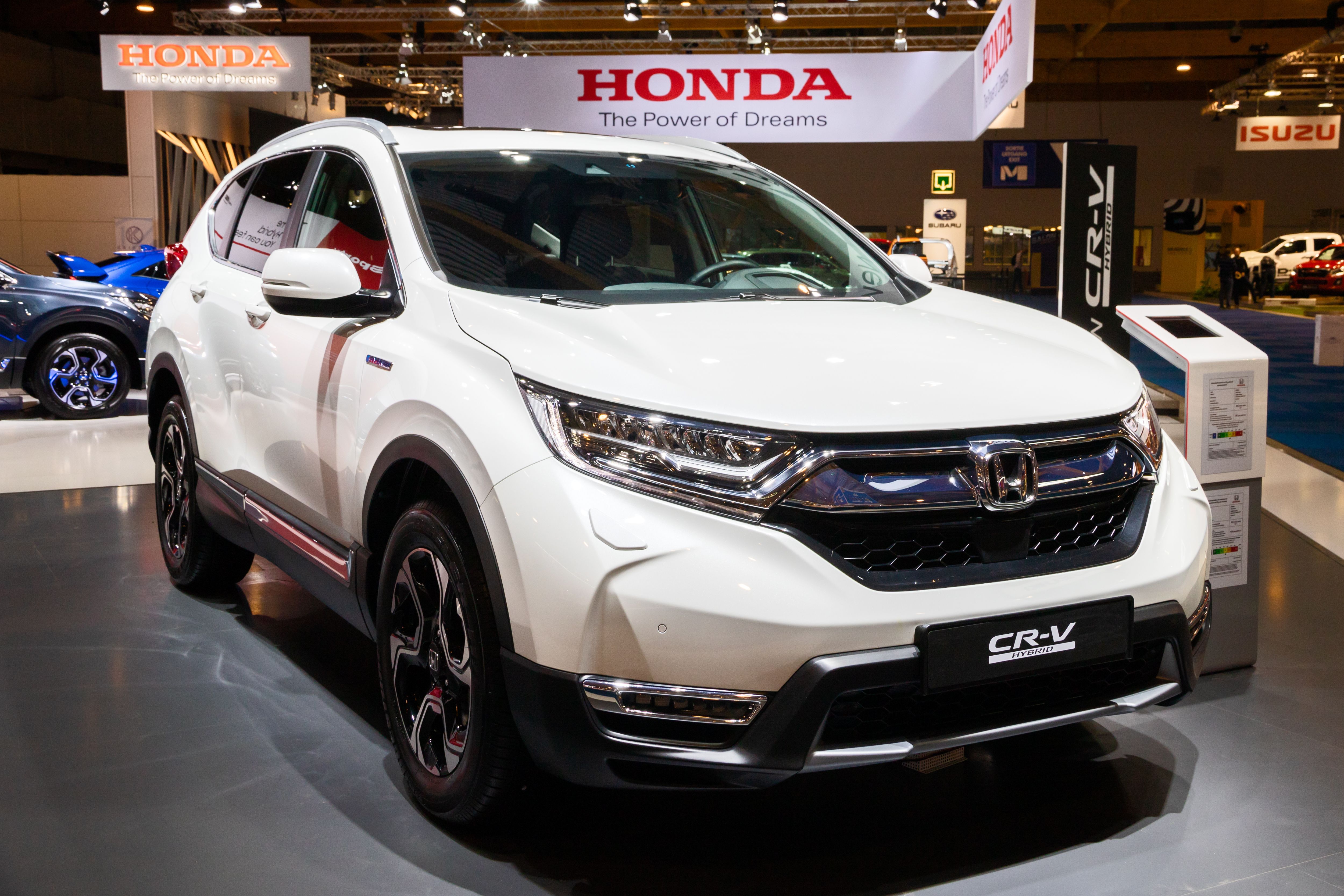
Both the diesel and petrol engines have great reviews, but the Hybrid is the one Honda is most proud of. Whilst some may find the interior a bit busy, the outside is modern and stylish, with moulded panels giving it an excellent road presence.
3. Mazda CX-5
The new generation of Mazda vehicles have a very striking appearance, and the CX-5 is no exception. It features high-tech LED headlights as standard, with sleek lines that somewhat downplay the large size. Perfect for those wanting a larger vehicle without the stigma.
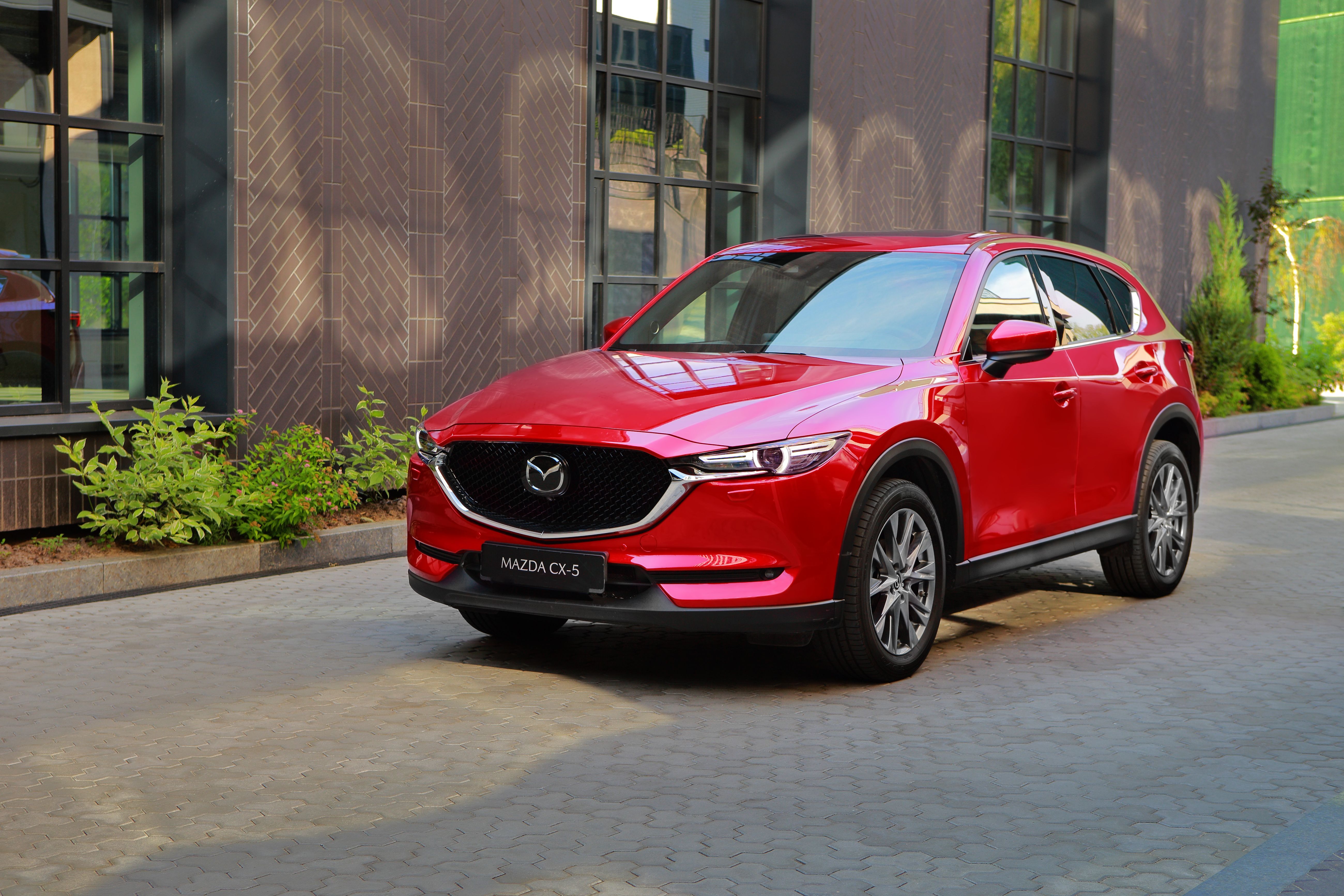
4. Porsche Macan
Want a crossover that still feels like a sports car? Well, add the Porsche Macan to your radar. This new compact luxury SUV crossover has a 261-hp turbocharged 2.0-litre inline-four engine to provide a sleek driving feel. Perfect for tackling twisty roads with ease.
5. Hyundai Palisade
Finally, the Hyundai Palisade is an attractive crossover you need to consider. With family buyers in mind, this crossover has three rows of seating, upmarket finishings, and convenience features. Pair this with a 3.9-litre V-6, and you have an impressive vehicle.

Best SUVs In 2024
1. Range Rover Sport
In its various forms, the quintessential British SUV, the Range Rover, has always focussed on luxury. The flagship Range Rover has, up until recently, even used a body-on-frame design, just as the original SUVs did.
While not topping the charts for reliability in past years, Jaguar Land Rover has improved its quality control systems and produces more high-quality vehicles.
The range-topping Range Rover SVR features a 5.0 litre supercharged V8 and can reach 60 mph in 4.3 seconds, faster than many sports cars.
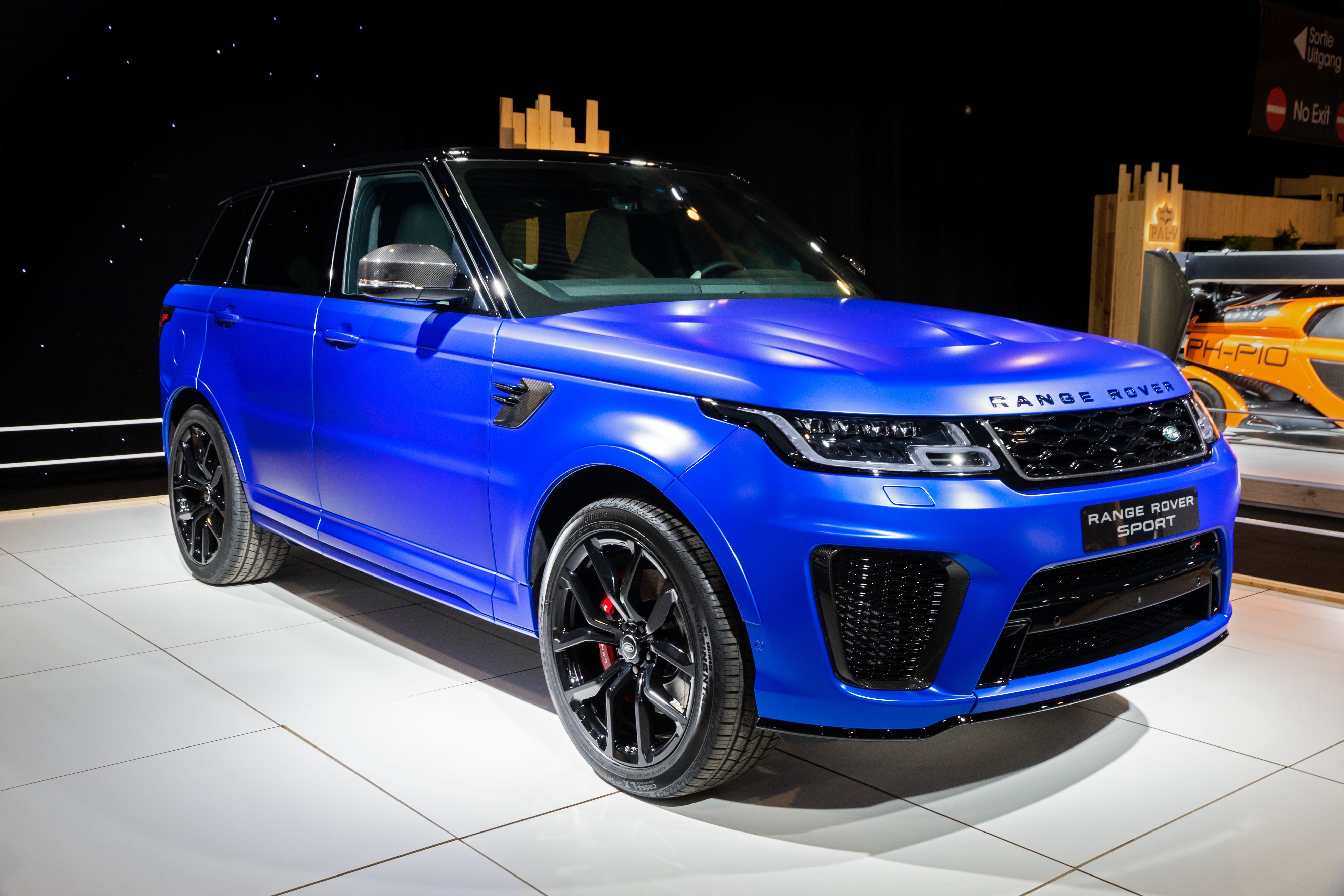
2. Toyota Land Cruiser
Whilst the Hilux offered by Toyota in the UK isn't the biggest SUV they make - it's actually known as the Toyota Prado outside of the UK and Europe - it can certainly be considered a large SUV here in Britain at over 4.5m long and nearly 2m wide.
Toyota is well-known for its reliability, and the new Land Cruiser should not disappoint with its high-tech but reliable 2.8L diesel engine. Its towing capacity is one of the best in its class at 3,000kg.
We've got a guide to the most reliable cars here! 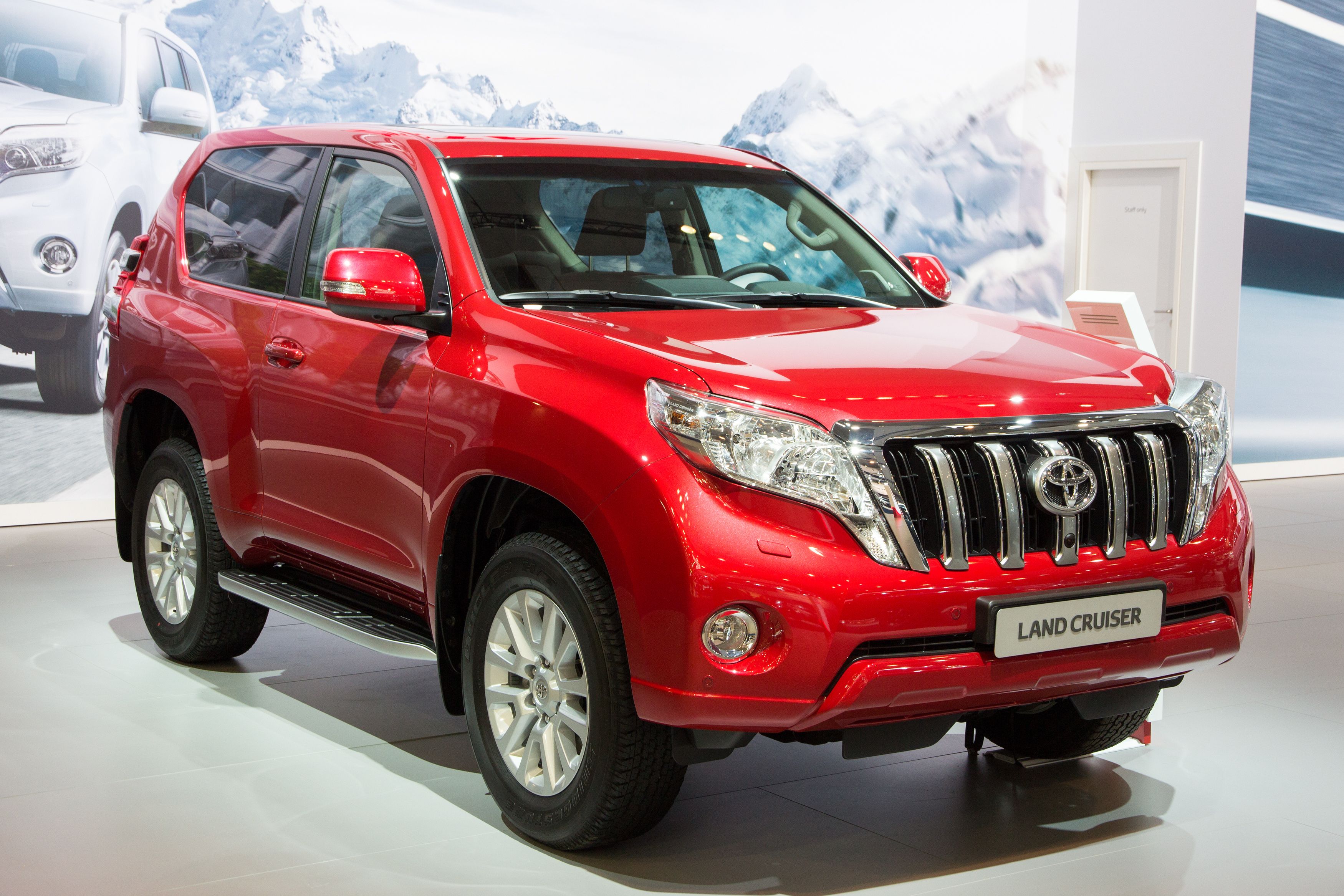
It also comes equipped with all the modern off-road systems, such as hill descent and electronic traction control to prevent wheel slip. Its large ground clearance also aids it in crossing land that is not suitable for most other SUVs.
3. Volkswagen Touareg
Whilst not following the traditional mantra of SUVs, the Touareg has always been of the unibody design. This isn't to say it can't hold its own across rough terrain. It just fits in better in the city.
With their recent trend towards luxury, the latest Volkswagen comes with all modern features such as adaptive cruise control, a sumptuous leather interior and park and lane assist.
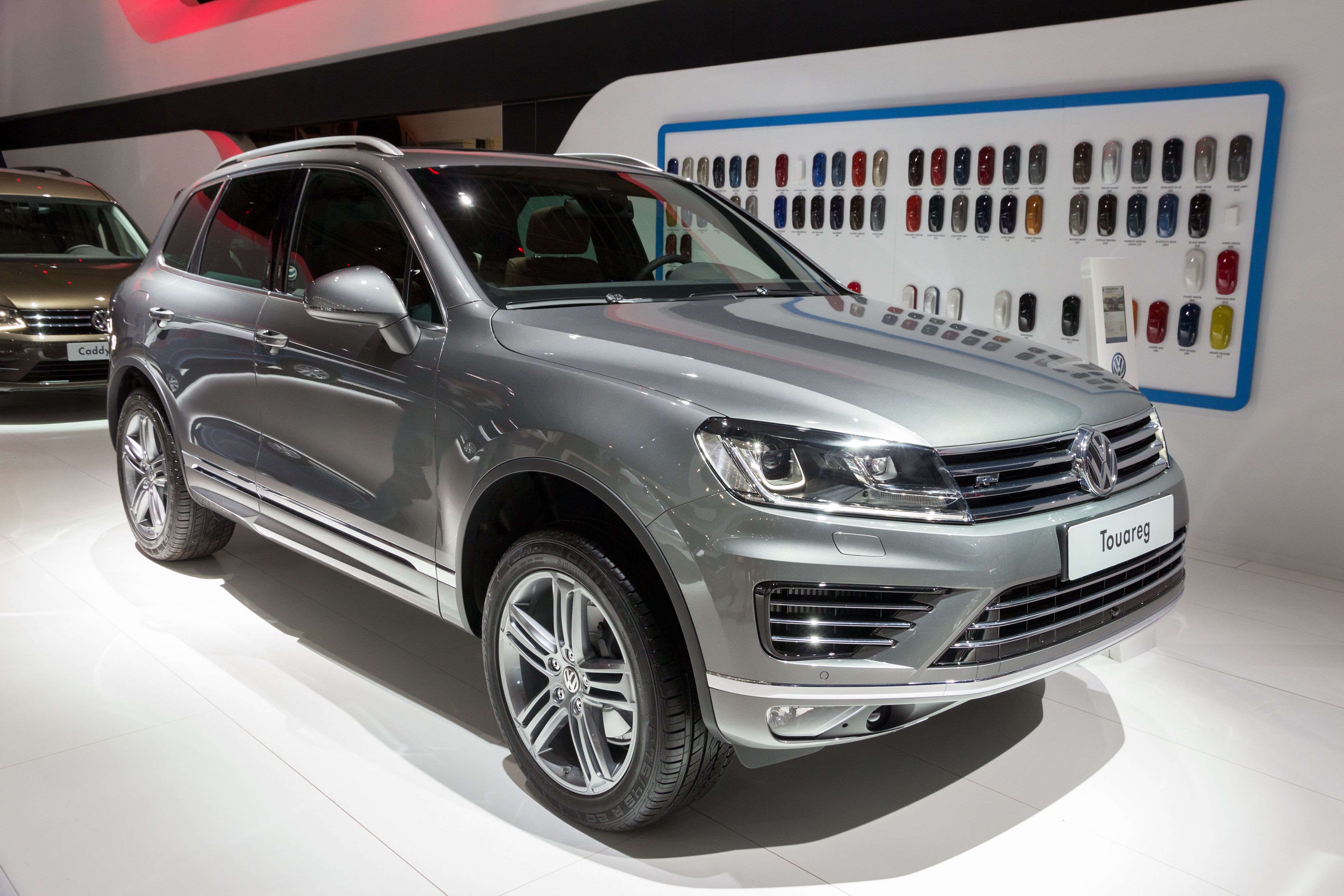 4. Chevrolet Tahoe
4. Chevrolet Tahoe
When it comes to full-size SUVs, you can’t beat the Chevrolet Tahoe. With plenty of power, intelligent Super Cruise driver technology, and up to 122.9 cu ft of cargo space, there’s lots to enjoy about this vehicle.
Three engine options are available, and the entry-level option is a 355-hp V-8. However, you can level up to a 420-hp V-8. Simply divine.
Though it’s been around for two decades, the Cadillac Escalade still reigns supreme on the SUV scene. The current rendition offers a luxury experience with a high-tech OLED interior, a 6.2-liter V-8 engine, a 36-speaker audio system, and three rows of seating.

Crossover vs SUV: The takeaway
When browsing crossovers and SUVs, remember that the main difference is the frame on which the vehicle rests. If it’s based on a commercial truck, it’s an SUR. If it’s based on a car, it’s a crossover. Both have their benefits, but it ultimately depends on what you’re looking for.
Hopefully, this guide has helped you move forward in your car-purchasing process. So, what will it be? Whatever you choose, Bumper is here to help you spread the cost of serving, MOTs, repairs, and parts.
Get started today. Enter your vehicle registration and postcode on our website to begin.
Author - Joseph Law
Joseph has been writing about cars for over seven years and writing for Bumper for over two, blending his passion for automobiles with a talent for storytelling.
Joseph has written about engineering and cars for Autozilla, Komaspec, and several engineering manufacturers. When he's not writing or tinkering with one of his five cars, Joseph dreams of owning an Alfa Romeo 33 Stradale.
Related Posts

